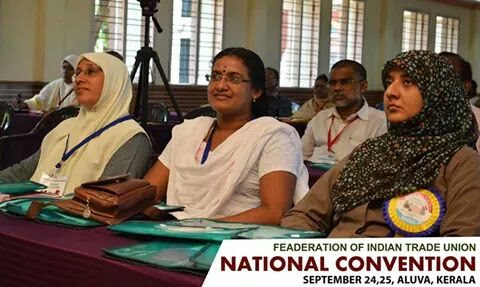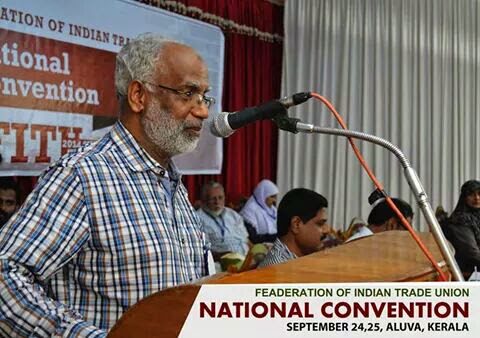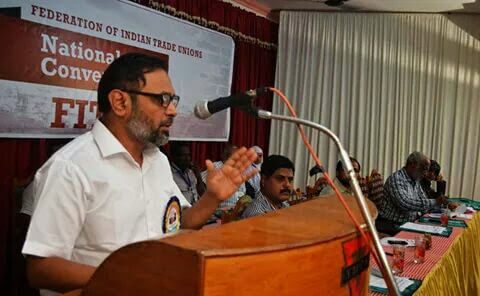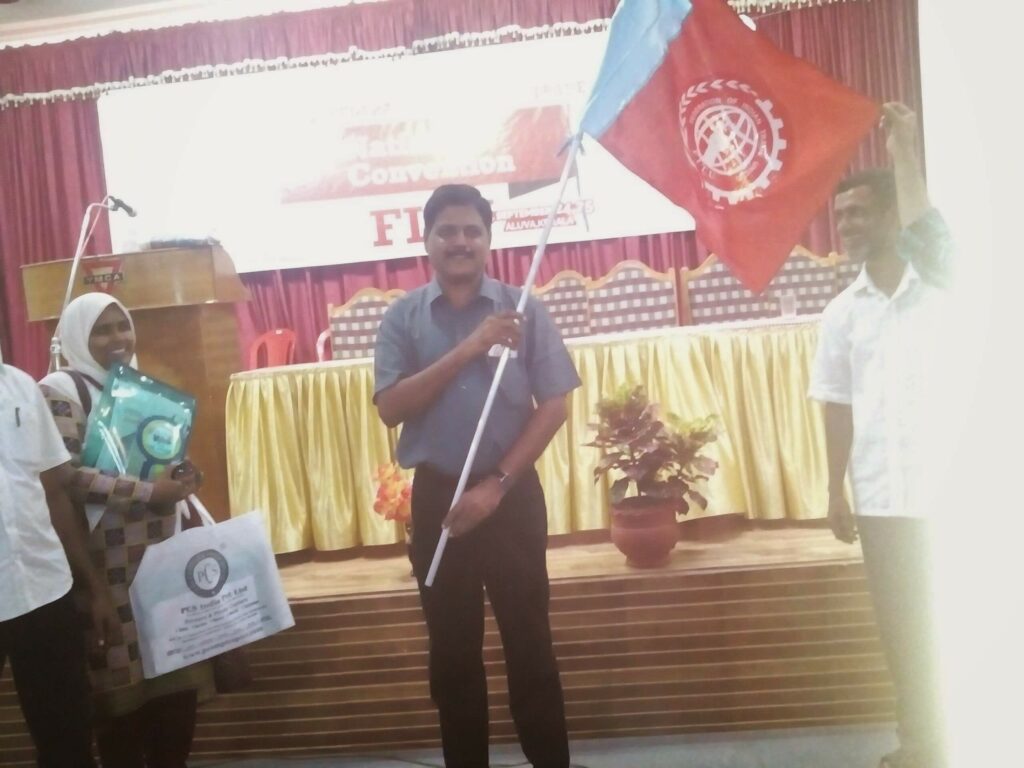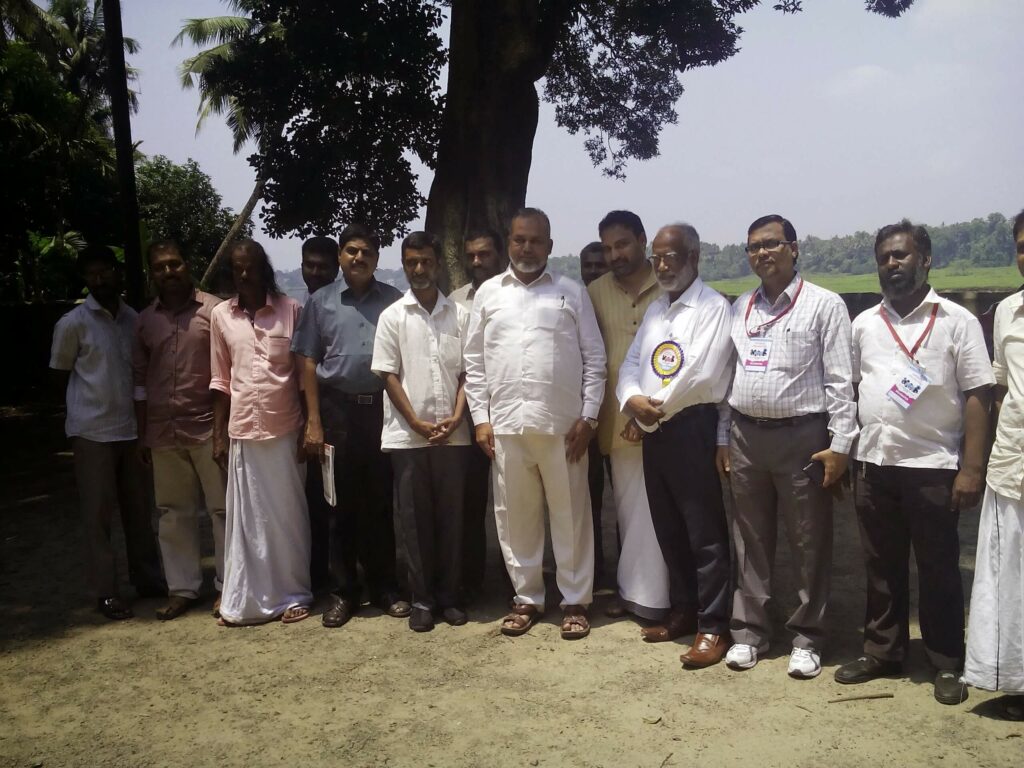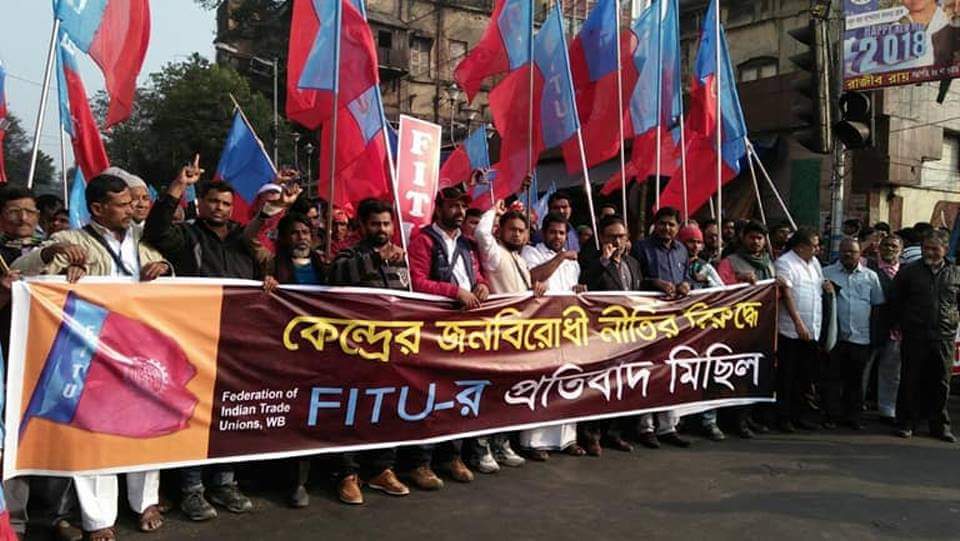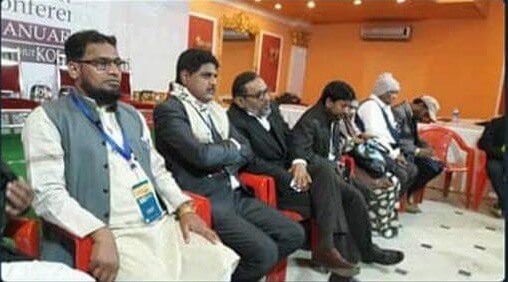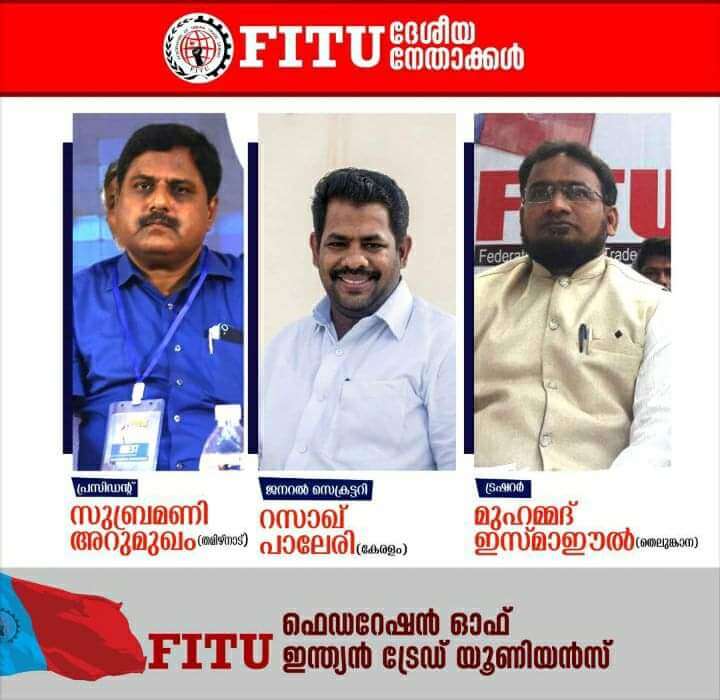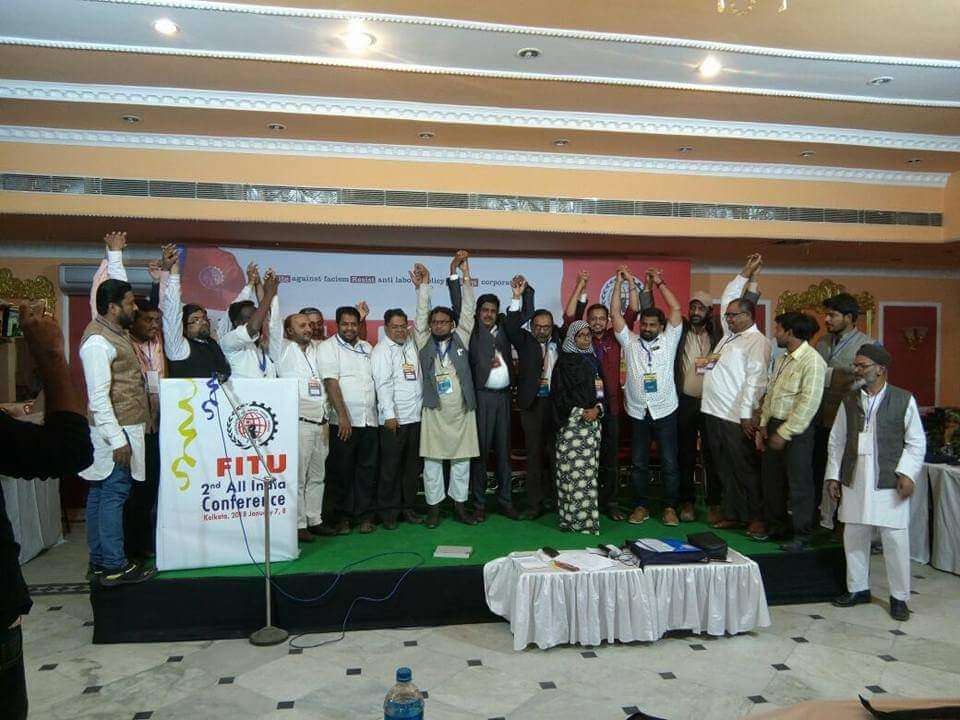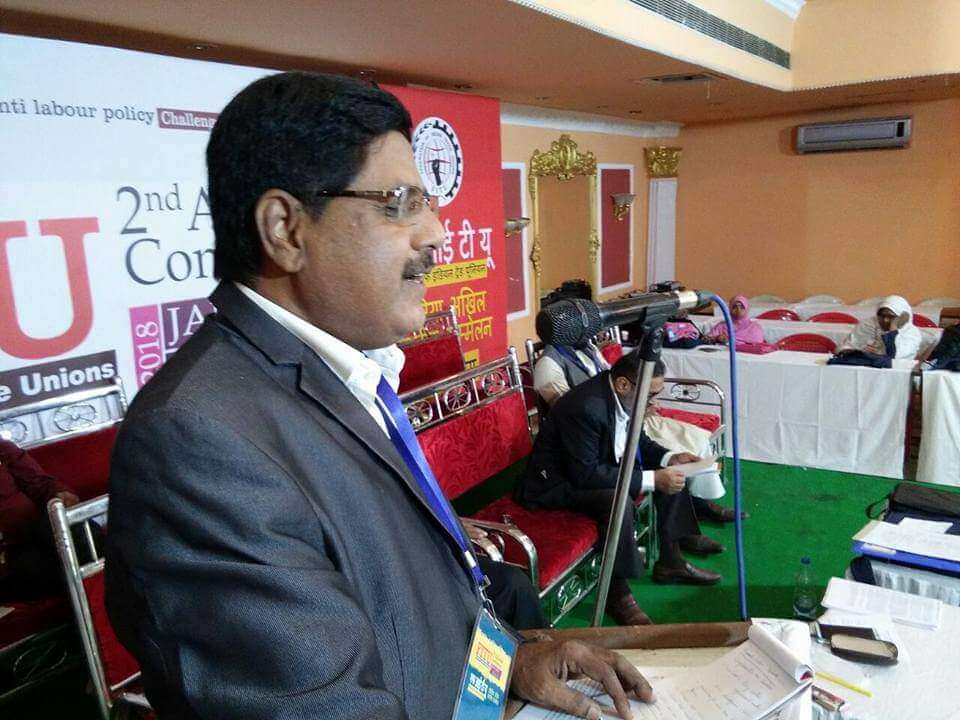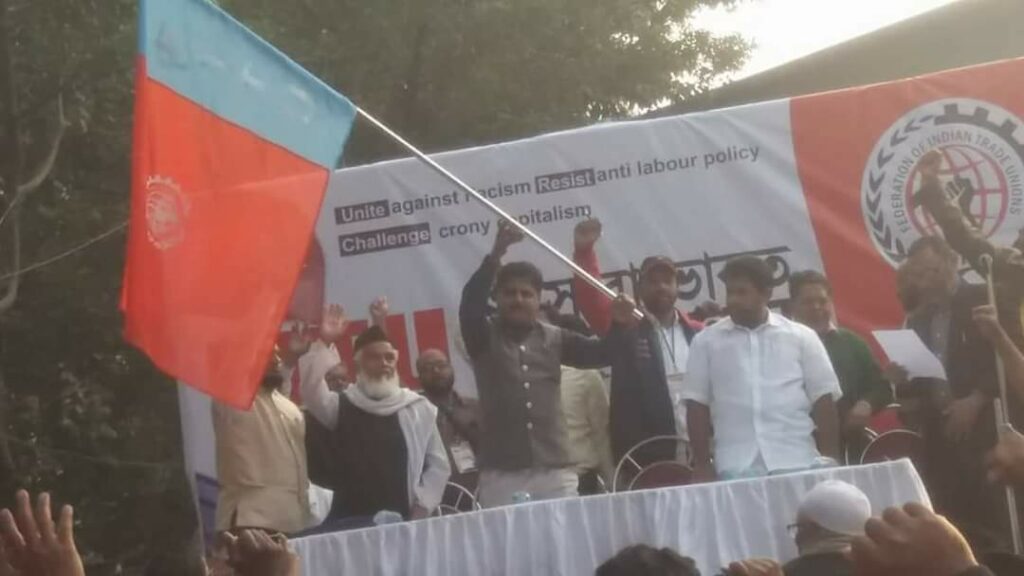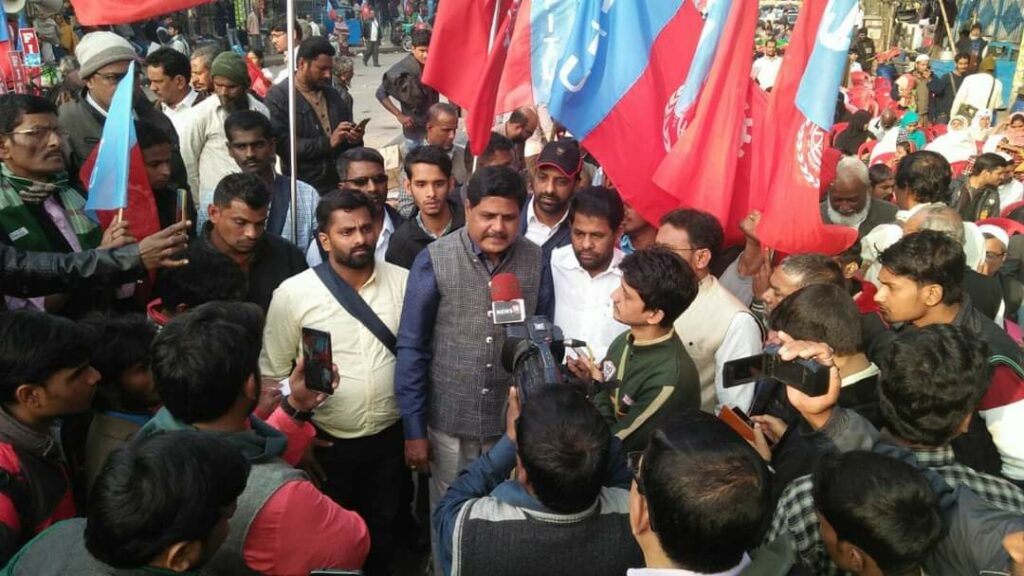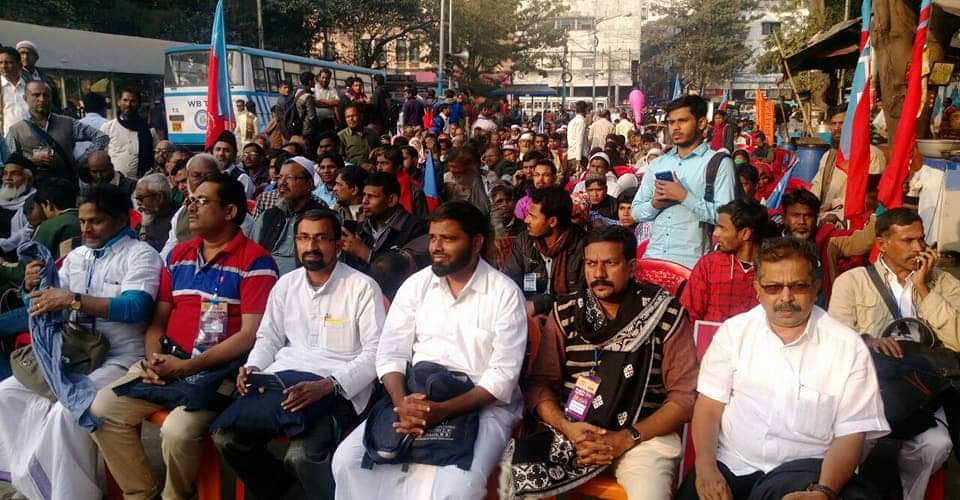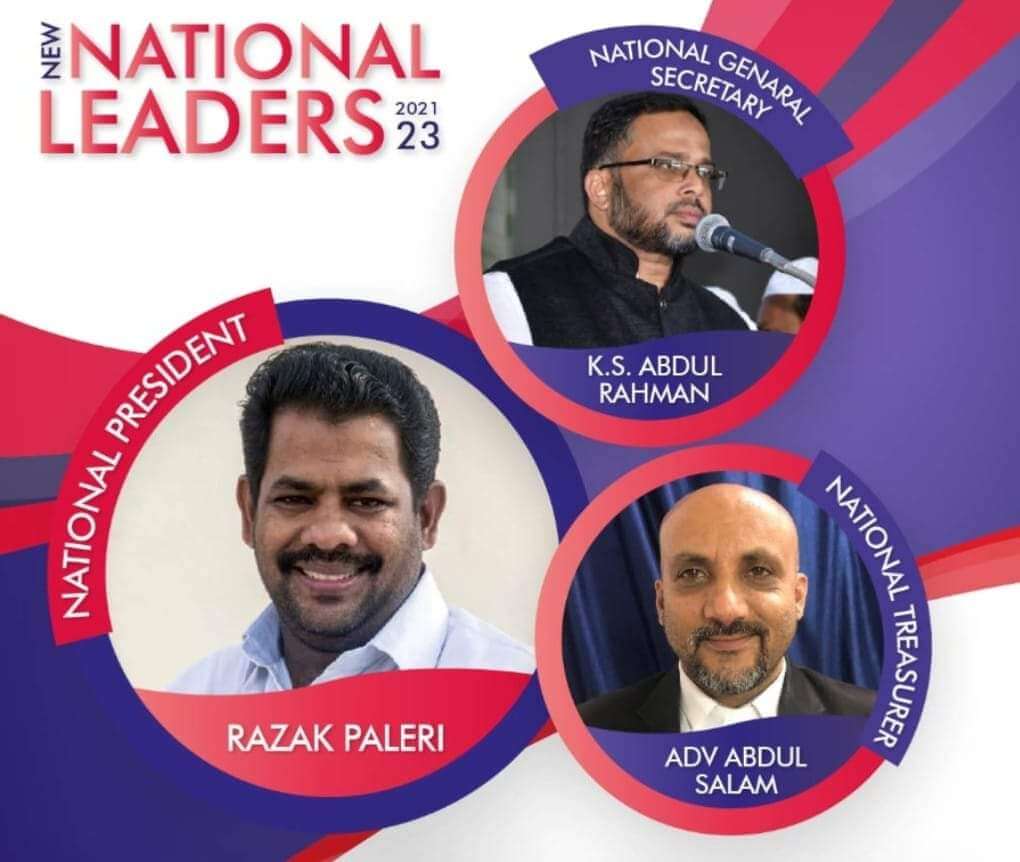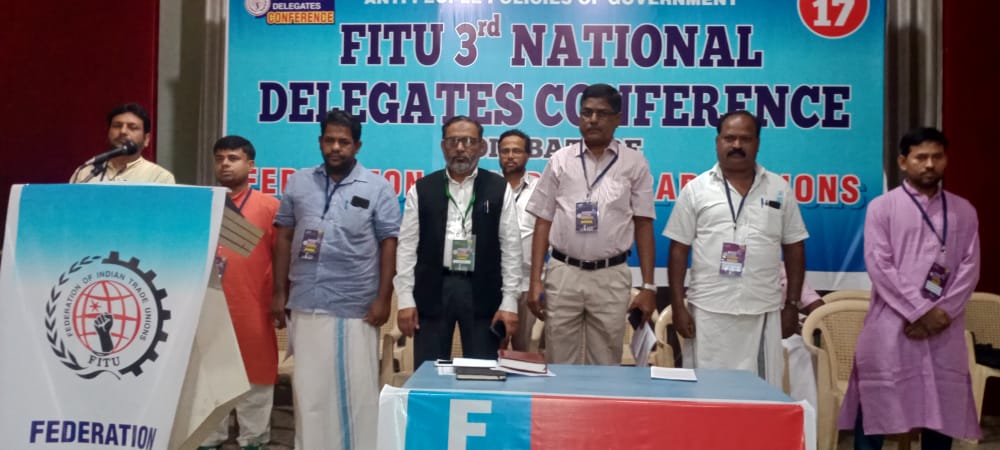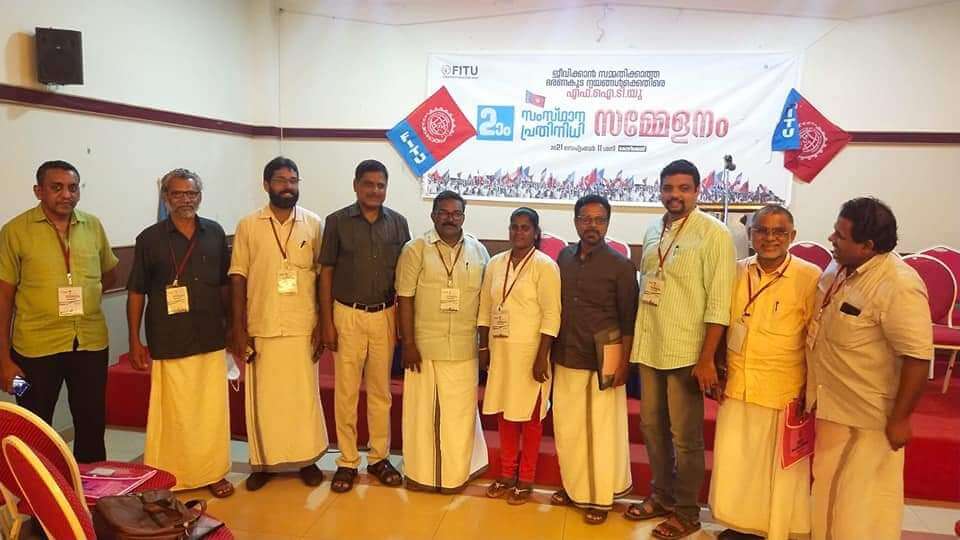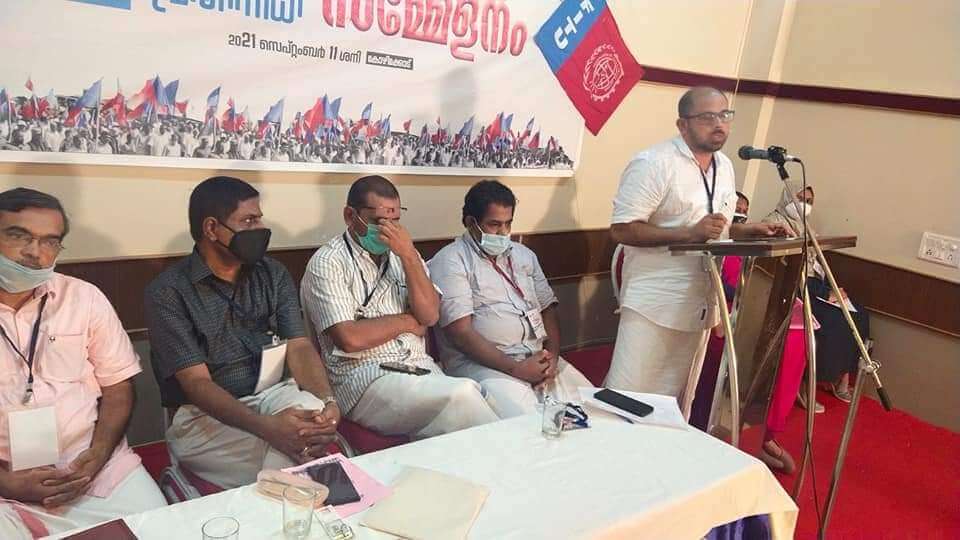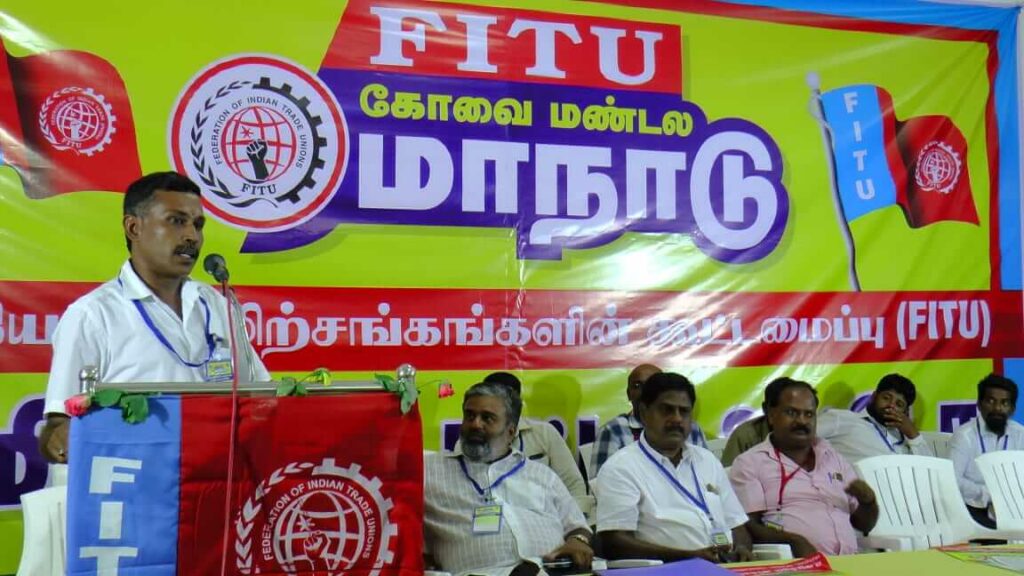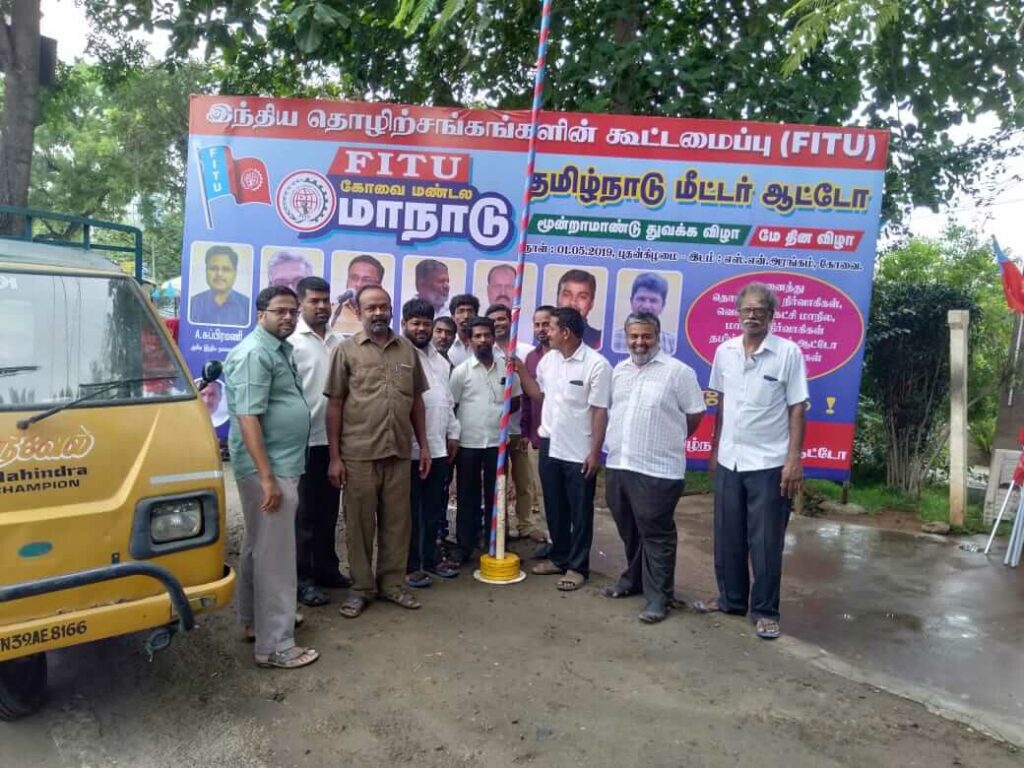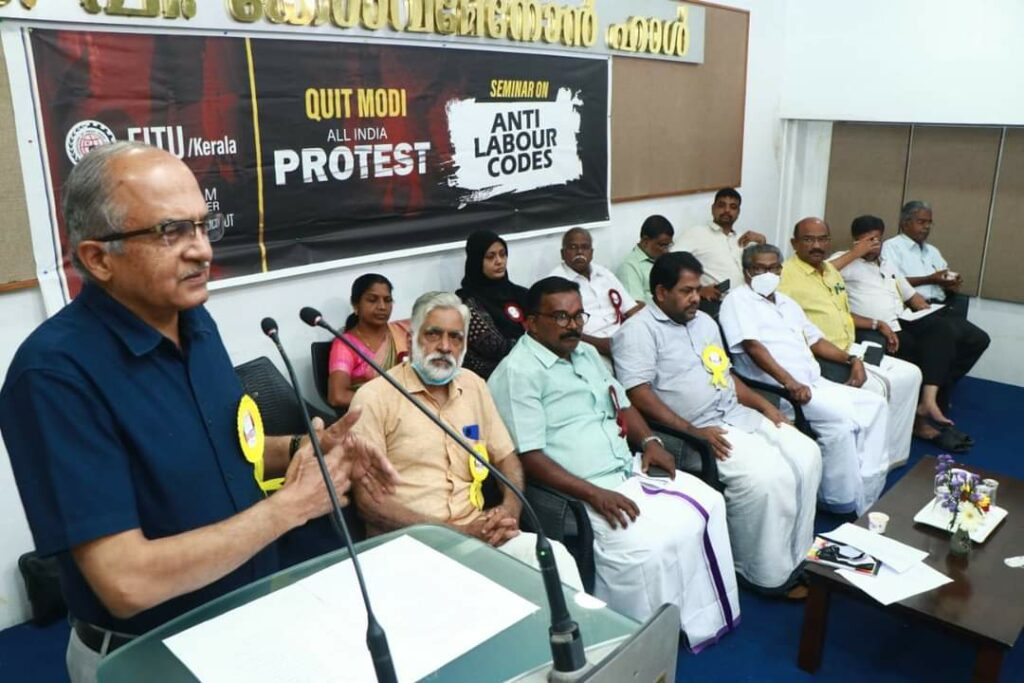FITU – A HOPE IN THE TRADE UNION HORIZON
The organized trade unions in India are not more than 100 years old. The labour movements in India have been fighting for both the rights and liberty of the workers. Many strong unions have emerged in the organized and unorganized sectors of India.
Mahatma Gandhi began his political career by conducting struggles with the workers of Chamberan. The leaders, including Nehru and Ambedkar, led the worker movement, which signifies the importance of worker’s organization.
Political movements and organizations also expand their base and influence with the human strength of the labour class. All laws, including the Trade Union Act of 1926 and Industrial Disputes Act of 1948 enacted for the rights of workers, were the result of continuous struggle by the trade unions. Today, the rights and benefits of these laws that the working class has been enjoying for decades are gradually eroded. Present day trade unions have no enough strength to address this challenge. The working class is looking for real alternatives and here is the relevance of FITU. A strong Labour movement has to emerge and take up this task.
Why FITU?
Most trade union movements in India are directly or indirectly related to any political organization. Most unions believe that political affiliation does not interfere with organizing the working class and protecting their rights.
The new economic policies initiated since 1991 in the name of liberalisation have robbed many of the rights of workers. It has adversely affected workers in the case of their wage and other benefits, and quite naturally their social well-being.
Political leadership of all kinds and “castes” is responsible for this situation. When these parties occupy citadels of power, they directly and indirectly indulge in formulating anti-labour laws and steps. It is illusory to believe that the rights of the workers can be regained/assured under such and present political leadership. This is the context where the new trade union take birth.
The paramount aim of FITU is to organise workers of all sectors and sections, give them adequate and accurate political orientation, and ensure their rights and all necessary conditions for their welfare.
Since its formation in September 2014, primary attention has been paid to the formation of unions in different employment sectors, especially in the unorganized sector, and bringing them under the FITU to create a strong organizational foundation.
So for we have established state committees in eight states and formed subunions for various sectors like auto drivers, catering and hotel workers, fish workers, scrap workers, construction and building workers, beedi workers, silk workers, tailoring and embroidery workers, agricultural workers, domestic workers, school teachers, street vendors, migrant laborers, etc., under unorganized sector and spinning and weaving workers union in NTC mill Kannoor, Kerala under organised sector.
We oppose all forms of violence, especially against women and children. All discriminations in the name of caste, religion, and faith must be resisted. The increase in intolerance and violence against religious minorities is one area where the trade union will have to pay attention.
Areas requiring attention of the FITU:
Workers Unity:
The Indian working class is facing a unique situation. The emerging political situation makes resistance to anti-labour policies hard and highly difficult. In addition to protecting existing rights, there is a need to fight against state policies that adversely affect the working class. It should also be borne in mind that the country is rapidly nose diving towards fascism. A united and joint movement can only fight against all these evils, especially communal fascism.
Agricultural sector:
The Indian economy is based on agriculture. A large number of farmers are small and poor. InternationalTreaties and the anti-farmer policies adopted by the government make their lives miserable. Liberalization of exports and imports, the elimination of subsidies, and speculative trade controlled by big corporate and giant firms monopolize the farm sector. . The anti labour policies of the government and the non-cooperative stands of banks including PSUs have aggravated the situation. As a result, large-scale peasant struggles have recently emerged in the country.
Protection of labour laws:
The labor laws in India are old, even precolonial. The pro-labor laws, including the Trade Union Act of 1926, Industrial Related Labor Disputes Act,, and Minimum Wages Act have come only as a result of continuous struggles.
The contribution of Indian Constitutional architect Dr. Ambedkar has to be remembered with reverence when we discuss Indian trade union movements. He submitted a proposal on working hours to be reduced from 12 to 8 hours for industrial workers. His intervention has been successful in granting maternity benefits to women workers and ensuring gender justice. The Employees’ State Insurance in India is the first of its kind in the East Asian region and is part of Ambedkar’s work. All these benefits are being robbed with the government always issuing sugar-coated lip service.
Protecting the public sector:
Several industrial and irrigation projects have been initiated in the public sector, revitalizing the domestic economy by creating jobs for thousands and contributing their profits to the public exchequer.
Nationalization of the major commercial banks of the country was a milestone step and boosted the Indian economy. But the privatization process that began in 90s have seen even the navratna companies being sold, public sector banks turning to be the brokers of haves, undermining the have-nots. Thus, reclaiming and protecting the public sector has become an essential part of the agenda of the labor movement.
Strengthening the public distribution system:
Availing food items with moderate prize is the right of millions of laborers and common people. Statutory ration is the right of every Indian citizen. New steps of the central government is destroying statutory ration system. The government is withdrawing subsidies from all social service sectors, especially PDS. This must be resisted.
Countering Fascism:
RSS has been dictating the policy of and for the BJP, and an atmosphere of intolerance and hatred among people of different faiths is being spread ferociously. All this is done for political gain and to gather power. Dalits and minorities are being hacked and lynched alleging them beef eaters. On one side, it is being done to polarise people and on the other it is being played to divert attention of the people from real issues and their anger emanated against government’s failures due to demonetisation and GST. These so-called nationalists are continuing support of multinationals and corporates.
Direct foreign investment:
Government policy to attract foreign investments without adequate safeguards is another area of concern that severely affects the working force of the country. Moves to amend labour laws in the name of simplifying laws and providing a more conducive environment for MNCs in our country are taking away almost all rights of labourers. The working force is rapidly becoming slaves of these foreign masters. Companies resort to a contract type of employment and play the hire-and-fire policy. Child labour and bonded labour are returning in new forms. Handover of the control of internal markets to such MNCs and foreign players multiplying speculative and aggregate trades.
FITU will strive hard in association with all other likeminded central and state trade unions, will mobilize the working class especially the unorganized sector to resist the anti- labour policies of the present government and to protect the rights of the labour and to provide then necessary social security.
Events
FITU Launching
FITU launching programme at Aluva, Kochi Kerala
First National Conference of FITU was held at Aluva on 24th & 25th Sep,2014. Mr. Mujtaba Farooq, National President Welfare Party of
India inaugurated the Conference. Dr. SQR Ilyas, National General Secretary launched FITU.
Mr. Subramani Arumugam was elected as The President & Prof. Ismail and Mr. Md Ismail elected as General Secretary and Treasurer, respectively.
Second National Conference of FITU | Kolkata | 7-8 Jan, 2018
The Conference was inaugurated by Dr. SQR Ilyas, National President, Welfare Party of India. Mr. Subramani Arumugam was re- elected as President for the Second Term. Mr Razak Paleri was elected as General Secretary and Mr. Md Ismail as Treasurer. A rally and a public meeting was also held.
Third National Conference of FITU | Coimbatore | 17 Oct, 2021
Mr. Razak Paleri, Mr. K.S. Abdur Rahman and Adv. Abdul Salam were elected as National President, General Secreatry & Treasurer, respectively.

